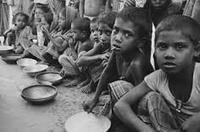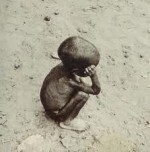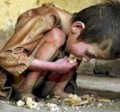Page under construction
Hunger. Have you eaten today? If so, give thanks...
 Hunger strikes have deep roots in Irish society and in the Irish psyche. A flag commemorating the 25th anniversary of the 1981 Irish hunger strike.
Hunger strikes have deep roots in Irish society and in the Irish psyche. A flag commemorating the 25th anniversary of the 1981 Irish hunger strike.
Hunger strike
Wikipedia
A hunger strike is a method of non-violent resistance or pressure in which participants fast as an act of political protest, or to provoke feelings of guilt in others, usually with the objective to achieve a specific goal, such as a policy change. Most hunger strikers will take liquids but not solid food.
In cases where an entity (usually the state) has or is able to obtain custody of the hunger striker (such as a prisoner), the hunger strike is often terminated by the custodial entity through the use of force-feeding.
Notice of Hunger Strike, Gillespie v. Thirteenth Judicial Circuit Florida et al., Case No. 5:11-cv-00539-WTH-TBS, United States District Court, Middle District, Florida, Ocala Division.
U.S. Judge William Terrell Hodges, Senior Status, presiding, with referral to U.S. Magistrate Judge Thomas B. Smith
United Nations Human Rights
OHCHR - Office of the High Commissioner for Human Rights - Geneva
The Office of the United Nations High Commissioner for Human Rights (OHCHR) represents the world's commitment to universal ideals of human dignity. We have a unique
mandate from the international community to promote and protect all human rights.
The High Commissioner for Human Rights is the principal human rights official of the United Nations. The High Commissioner heads OHCHR and spearheads the United Nations'
human rights efforts. We offer leadership, work objectively, educate and take action to empower individuals and assist States in upholding human rights. We are a part of the United Nations
Secretariat with our headquarters in Geneva.
The Office's priorities are set out in two key strategic documents: the OHCHR Plan of Action and its Strategic Management Plan 2010-2011. These priorities include greater country engagement, working closely with our partners at the country and local levels, in order to ensure
that international human rights standards are implemented on the ground; a stronger leadership role for the High Commissioner; and closer partnerships with civil society and United Nations
agencies. Read more
Complaining about human rights violations
Human Rights Bodies - Complaints Procedures
World Food Program - Fighting hunger worldwide
The World Food Programme is the world's largest humanitarian agency fighting hunger worldwide.
In emergencies, we get food to where it is needed, saving the lives of victims of war, civil conflict and natural disasters. After the cause of an emergency has passed,
we use food to help communities rebuild their shattered lives.
WFP is part of the UN system and is voluntarily funded. Read more
"Speak up for those who cannot speak for themselves, for the rights of all who are destitute. Speak up and judge fairly; defend the rights of the poor and needy."
Proverbs 31:8-9 (NIV)
Hunger Wikipedia
Hunger is the most commonly used term to describe the social condition of people who frequently experience the physical sensation of desiring food.
On October 11, 2010, it was reported that the number of malnourished people in the world exceeded 1 billion people, about a sixth of the world's total population.
Six million children die of hunger every year. World Food Programme statistics presented through TeleSUR on 11 January 2012 indicated that approximately every 6 seconds
one kid dies of hunger. Read more
The Challenge
Hunger can be eliminated in our lifetimes
This requires comprehensive efforts to ensure that every man, woman and child enjoy their Right to Adequate Food; women are empowered; priority is given to family farming; and food systems everywhere are sustainable and resilient.
The challenge of Zero Hunger means:
- Zero stunted children less than 2 years
- 100% access to adequate food all year round
- All food systems are sustainable
- 100% increase in smallholder productivity and income
- Zero loss or waste of food
Eliminating hunger involves investments in agriculture, rural development, decent work, social protection and equality of opportunity. It will make a major contribution to peace and stability and to the reduction of poverty. It will contribute to better nutrition for all – especially women from the beginning of pregnancy and children under the age of two. The United Nations Secretary-General gives top priority to the elimination of hunger. He appreciates the bold leadership by many from government, civil society, business, labour unions, consumer groups and the scientific community. They succeed through working together.
They encourage participation by a range of organizations, social movements and people around a common vision. They promote effective strategies, more investments and increased development cooperation, in line with existing national and international agreements. They strive for results and are accountable for their efforts – particularly to those who are hungry. Read more






































































































































